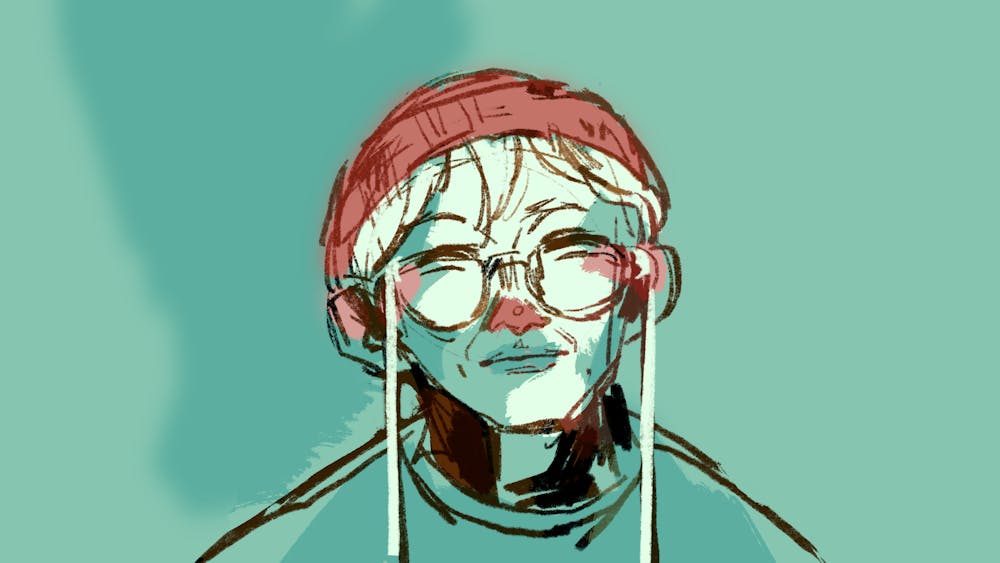The film A New Old Play opens with its protagonist’s death.
The audiences follow a rickshaw operated by two demons, Ox–Head and Horse–Face, who are subordinates to the king of Hell (“yanluo wang") and escort the now–dead Qiu Fu into the underworld in Chinese mythology. They find Qiu Fu in a dense fog; he immediately recognizes them as messengers from Fengdu, the capital of Hell, and realizes that he has already passed away. But neither the demons are malicious nor vindictive—and nor does Qiu Fu seem to be saddened by his untimely death. Instead, they banter with each other in traditional Sichuan dialect, before embarking on the highway to hell, literally.
The opening sequence perfectly encapsulates the bizarrely fascinating quality of Qiu Jiongjiong’s three–hour–long fictional feature debut. A New Old Play is ambitiously magnificent and all–encompassing, yet also at times adroitly playful and incisively satirical. A unique blend of fiction, family history, experimental theater, and historical epic, the film traces the life of Qiu Fu, a Sichuan opera actor specialized in the role of “clown” (“xiaochou”) from the 1930s to 1980s. Through his personal perspective, the film keenly observes the enormous transformation of Chinese society as the Japanese, the Nationalists, and the Communists successively wrecked havoc upon the ancient land. While most epics of such breadth and length often opt for a solemn and ruminative tonality, A New Old Play completely subverts the expectation, yet still generates momentum and creates huge space for introspection.
It is worth pointing out that the connotation of clowns in the diegetic world is somehow different from that of the Western society. While usually associated with goofy circus performance, as well as homicidal urges with repeated appearances in horror films, clowns, or “xiaochou,” in the context of Sichuan Opera faintly alludes to a sense of melancholy. The clown is often depicted as someone who is poor, coarse, does not possess much agency in deciding the course of his life—but at the same time, resilient, darkly humorous, and finds joy in misery and mundanity.
The protagonist Qiu Fu is very much a “clown,” as he drifts through his life in the intimidating waves of wars, political changes, and cultural revolution. Nonetheless, his aura of nobility constantly shines through. Perhaps director Qiu Jiongjiong puts it best during one interview, as he refers to the “clown spirit” as “the core and quintessence of my cinematic grammar,” and characterizes the clown as a figure of contradiction: “His humble, modest demeanour hides a brave soul; there is sadness and melancholy under a playful, clownish exterior.”
The mise–en–scene of A New Old Play also perfectly complements its historical narrative and playful altitude. Instead of seeking photorealistic quality with expansive settings and costly CGIs, the director revives an ancient tradition of handmade craftsmanship. The film is shot entirely in obviously contrived sets with stage props and painted canvas, and forgoes any sense of depth as the cinematographer operates the camera to move only horizontally. To give one simple yet brilliant example, the film uses huge plastic bags blown by wind to mimic the turbulent waves of a river. The result is a film that actually resembles a play (as the title suggests); however, in intentionally creating a sense of comical foreignness, it also magically approaches history and reality even closer in an expressionistic manner.
A New Old Play is without doubt a wholly cinematic experience. While its usage of Sichuan dialect personally struck me deeply in bringing me back to my homeland of Chongqing, it will provide a mesmerizing, breathtaking ride for every audience, as grand as the scope of Chinese history and mythology and as intimate as one’s noble struggle against destiny.
Released by Icarus Films, A New Old Play is still touring in sporadic theaters around the United States. If you happen to catch one of its screenings, remember that as you exit the theater, you will not be the same person as you were three hours ago.

